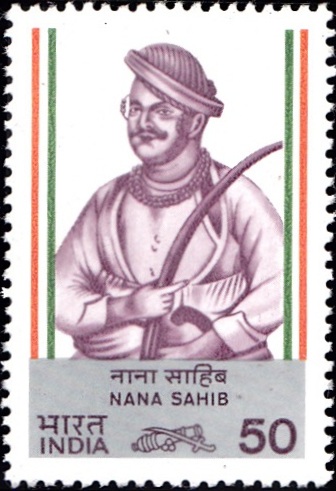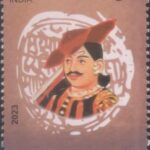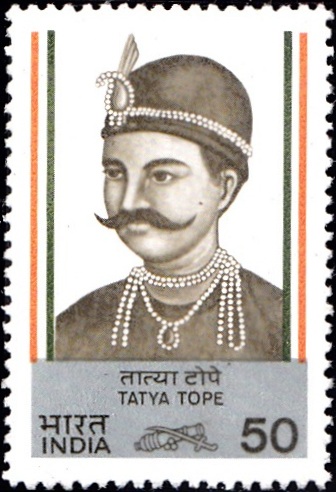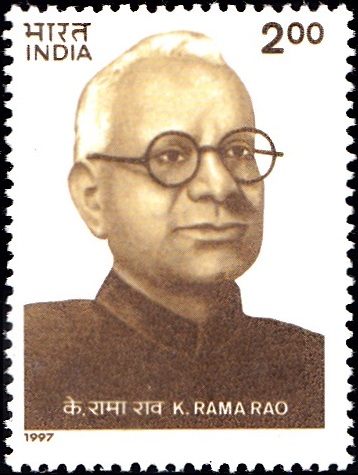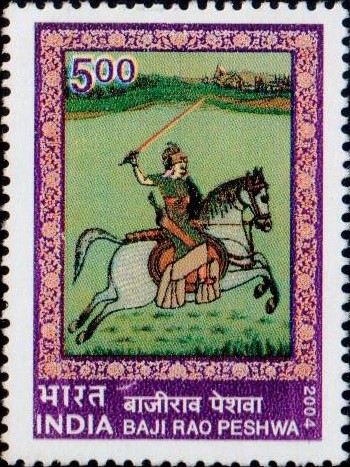
Baji Rao Peshwa
A commemorative postage stamp on Shreemant Peshwa Baji Rao I, Peshwa of the Maratha Empire (1720-40) :

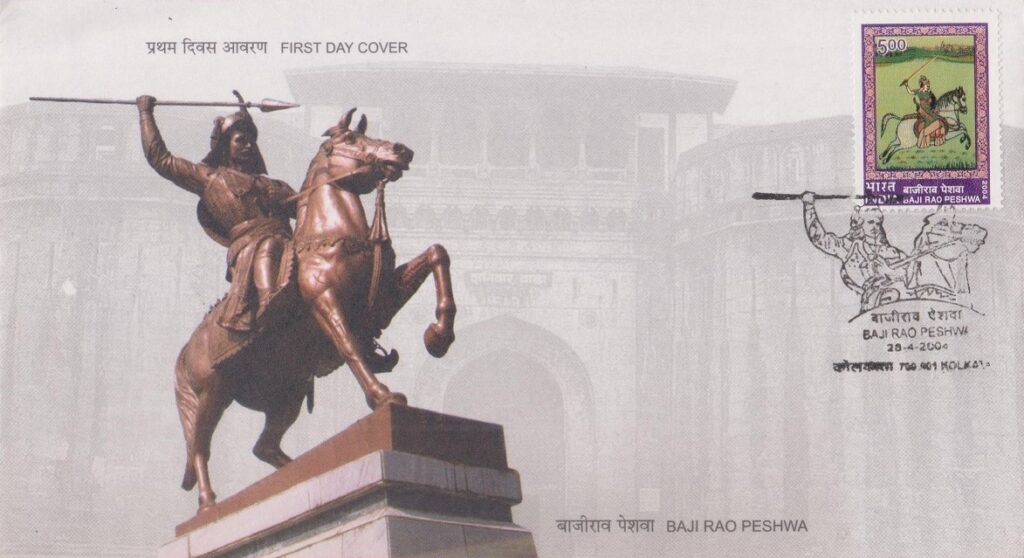
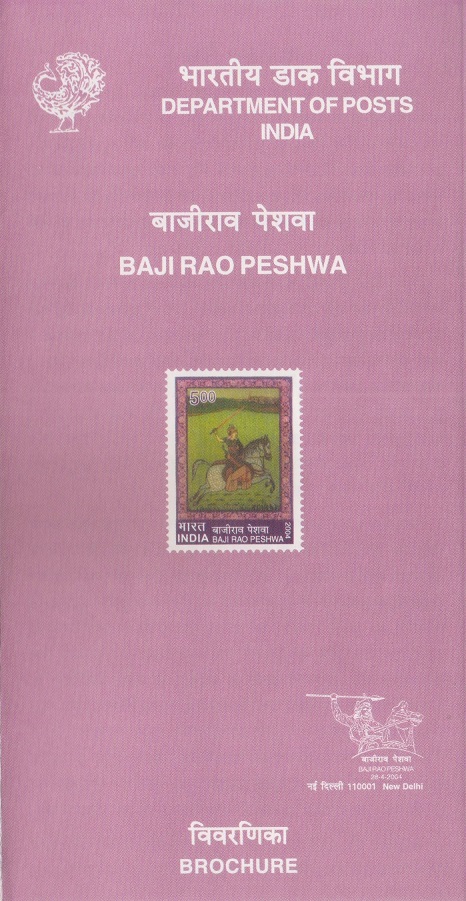 Issued by India
Issued by India
Issued on Apr 28, 2004
Issued for : The Department of Posts honours Baji Rao Peshwa, a great general and statesman, through issue of this commemorative postage stamp.
Design : The first day cover depicts the statue of Baji Rao Peshwa in front of Shaniwar Wada built by him at Pune in 1730.
Credits :
Stamp : Layout design by Alka Sharma (Based on material given by the proponent)
FDC & Cancellation : Alka Sharma
Type : Stamp, Mint Condition
Colour : Multi Colour
Denomination : 500 Paise
Print Quantity : 0.4 Million
Printing Process : Photogravure
Printer : India Security Press, Nashik
Name : Bajirao Ballal
Born on Aug 18, 1700
Died on Apr 28, 1740 at Raverkhedi, Khargone district, Madhya Pradesh, India
About :
- To Baji Rao Peshwa has been attributed the transformation in the character of the Maratha nation state and the entire redistribution of political power throughout India during the 20 years of his active career (1720-1740). His appointment by Chhatrapati Shahu as Peshwa was not merely a hereditary succession to office; it was recognition of his precocious ability as a soldier and statesman. Baji Rao‘s career justified the choice that was made.
- Born in 1698, Baji Rao was trained in the art of battle by his able father Balaji Vishwanath and had his first taste of it at the tender age of eleven. While being preoccupied with his military training, Baji Rao managed to acquire a little formal education, but what set him apart was his political acumen and military genius. Marriage to the charming Kashibai did not prevent him from finding the great love of his life, the daughter of Chattarsal, Mastani, for whom an additional wing was made at his Shaniwar Palace. She immolated herself in his funeral pyre, when he died in 1740 after a sudden illness.
- Baji Rao has been recognized for his tremendous daring and originality as also for the value of his achievements. He established the supremacy of the Marathas in the Deccan and extended their power substantially in the North. He succeeded in defeating the Nizam who represented Mughal power in the Deccan. His success was marked by the fact that Marathas received the taxes of ‘Chauth‘ and ‘Sardeshmukhi‘ from the Nizam’s territories. Ably assisted by a very loyal army and his brother Chimnaji Appa, he extended the power of the Marathas into the maritime districts held by foreign powers: restricting the power of the Sidi in the coastal region and destroying Portuguese authority in North Konkan. Breakaway chieftains, intriguing against the Maratha power, were summarily taught a stern lesson. The position that Baji Rao secured for the Maratha state lasted for more than half a century.
- Baji Rao had an uncanny perception of the times in which he lived and utilized the mutual intrigues and court factions which existed at Delhi and in other states to extend the Maratha influence beyond the Narmada. He established his hold over Malwa and Bundelkhand and challenged the Mughal authority at Delhi. He counted Chattarsal of Bundelkhand and Sawai Jai Singh of Jaipur among his friends. Baji Rao enjoyed the complete trust of his king. His brother Chimnaji was a dependable asset. Gifted with the capacity to identify men with talent and determination, the Peshwa picked men like Udai Pawar, Malharrao Holkar and Ranoji Scindia, entrusting them with the command of his troops. Such trust was repaid abundantly with great loyalty. The three brilliant soldiers went on to found their independent states at Dhar, Indore and Gwalior, respectively.
- Baji Rao‘s success lay in his character and in his able leadership. His persistent energy, single mindedness, faith, courage and a total understanding of the political situation made him an exemplary general and Peshwa to the King. Relying mainly on the cavalry, his forces were renowned for their swift movement. Often covering over 50 miles per day, his troops lived a life of discipline and austerity. They were not encumbered by baggage, tents or women in their camps. Nights were not meant for sleeping but for organizing raids. He refined and used effectively the Maratha tactics of harassing the enemy and cutting off their supplies. Baji Rao knew that the only way to lead was by example and he shared the hardships of his soldiers. He rewarded merit while simultaneously following a stringent code of discipline at work.
- Text : Based on material given by the proponent.


